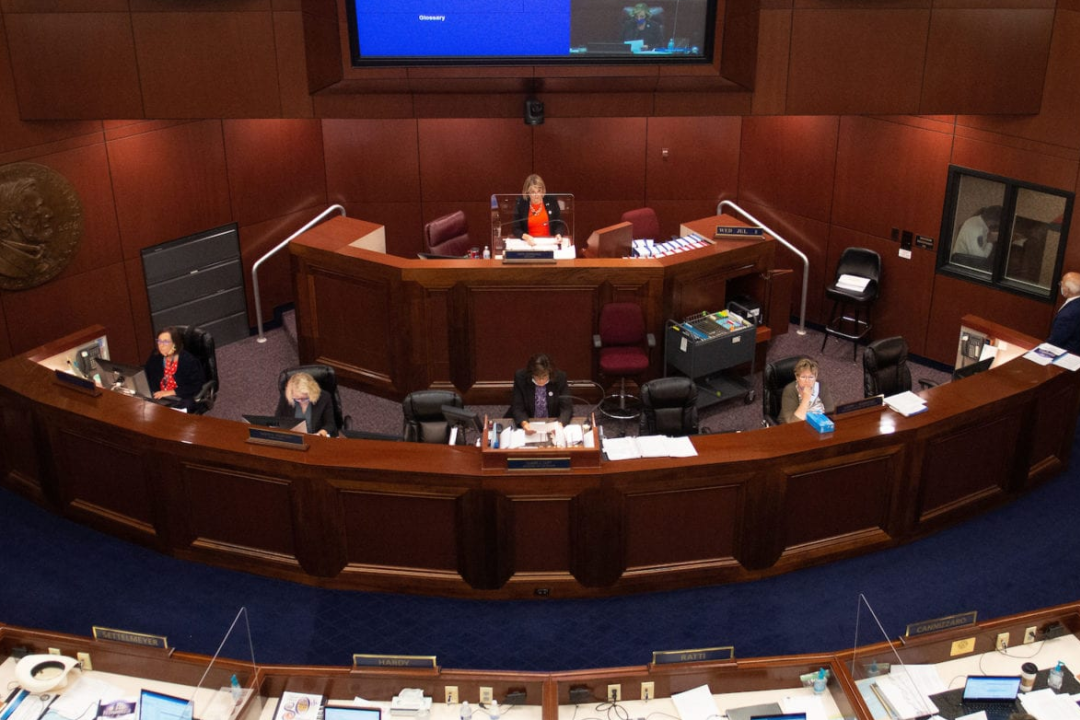Nevada Legislature Sends Bill to Decriminalize Minor Traffic Violations to Governor Sisolak
Bill Would End Widespread Practice of Arresting & Jailing People Who Can’t Afford Minor Traffic Ticket
Today, the Nevada legislature approved a bill that would decriminalize minor traffic violations — making them civil infractions and ending the widespread practice of issuing warrants when an individual can’t afford to pay the fines and fees imposed. Nevada is one of only 13 U.S. states that prosecutes minor traffic violations as criminal offenses, rather than as civil infractions.
AB 116 was introduced by Assemblywoman Rochelle Nguyen with seven primary sponsors — including the Senate Majority Leader Nicole Cannizzaro — and 23 co-sponsors, including Republican Lisa Krasner, Nevada’s Assistant Minority Whip.
“Prior to this legislation’s passage, people who were unable to pay traffic fines and fees for minor violations such as driving with an expired vehicle registration or driving with a broken tail light could be arrested and even incarcerated. This costs taxpayers millions of dollars each year, and it could even cost those who are unable to pay the loss of their jobs,” said Assemblywoman Nguyen. “I’m pleased to have worked with community partners and other stakeholders to finally get this legislation passed so that Nevada can join many of our neighboring states that have already decriminalized traffic tickets.”
A broad coalition of stakeholders has lined up in support of AB 116, including FFJC, Americans for Prosperity, Mi Familia Vota, Progressive Leadership Alliance of Nevada, ACLU of Nevada, Nevada Attorneys for Criminal Justice, Clark County Black Caucus, Forced Trajectory Project, Battle Born Progress, Return Strong: Families United for Justice for the Incarcerated, Mass Liberation Project, and the Washoe County Public Defender’s Office.
“These warrants distract law enforcement from activities that actually improve public safety and can unnecessarily rob individuals of opportunities to improve their lives — particularly those already struggling to succeed,” said Wiz Rouzard, Community Engagement Director at Americans for Prosperity. “Such actions waste time and resources, lead to unnecessary contacts between citizens and police, and can erode trust between law enforcement and the communities they serve.”
Nevada’s Justice and Municipal Courts have issued hundreds of thousands of arrest warrants over the years. When the pandemic forced courts to close last March, 270,000 warrants were outstanding in the Las Vegas Justice Court alone.
Warrants are a counterproductive and expensive method of coercing people to pay a traffic ticket. In Clark County, the average person arrested on a traffic warrant spends almost three days in jail at a cost to taxpayers of over $400. The harm to the individual and their family is even greater. Three days in jail often costs a person their job, their housing, and even their children, making it far more difficult to earn the money to pay their court debt or to care for themselves or their families.
AB 116 builds on a successful model established by Carson City, which stopped issuing warrants in traffic cases in 2019. Carson City’s collection rate increased by 8.5% following implementation.
Although some jurisdictions have stopped enforcing warrants because of Covid-19, others such as Henderson and North Las Vegas are continuing to issue and enforce warrants for traffic debt — with devastating consequences that trap residents in a vicious cycle of debt and criminal punishment.
“Decriminalizing traffic fines and fees is the right thing to do, if we want a fair and just criminal justice system,” said Yvette Williams, chair of the Clark County Black Caucus. The slippery slope of a minor traffic violation spiraling out of control due to high fines and fees often results in suspended drivers license, warrants for arrest due to unpaid fines and fees, and too often imprisonment and/or a criminal misdemeanor record that follows you the rest of your life. With the passage of this bill, Nevada disrupts a racially biased system that disproportionately impacts Black and Brown families and low income people, and we can’t be happier.”
“Today’s vote brings Nevada closer to finally ending this antiquated, counterproductive policy that exacerbates economic inequality and racial injustice,” said Leisa Moseley, Nevada State Director at the Fines and Fees Justice Center (FFJC). “Punishing people because they don’t have money is bad economic policy. At a time when so many Nevada residents are struggling to meet their basic needs, this criminalization of poverty is adding insult to injury.”
